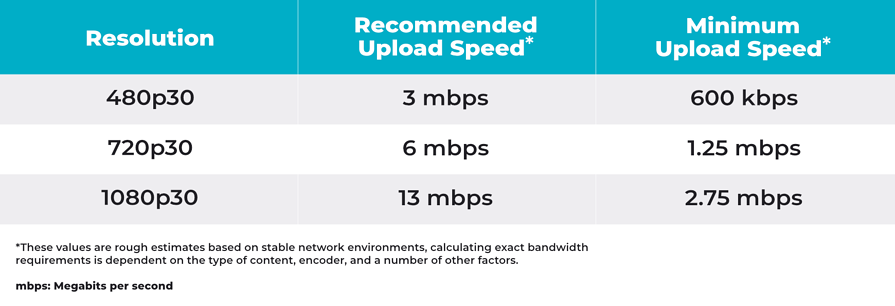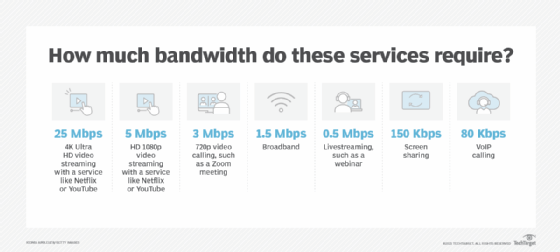Recognizing How Megabits Per Second Affect Your Internet Experience
Recognizing How Megabits Per Second Affect Your Internet Experience
Blog Article
Just How Megabits Per Second Influence Your Online Tasks
The concept of megabits per second (Mbps) plays a pivotal function in forming our online experiences. As digital activities proliferate, comprehending the ramifications of Mbps on video, streaming, and gaming conferencing comes to be significantly vital. Greater Mbps can improve performance and decrease disruptions, while inadequate rates might promote frustration and inadequacy. Analyzing your house's certain demands in connection with these speeds is important, particularly as numerous tools strive for data transfer. The nuances of just how Mbps influences different online activities necessitate more exploration, particularly as our dependence on digital connection proceeds to develop.
Comprehending Megabits Per Second
When considering net speed, it's crucial to comprehend the principle of megabits per second (Mbps), which works as a basic dimension for information transfer rates. This statistics quantifies exactly how much information can be transmitted over a net link in one second, supplying a clear understanding of performance abilities - Megabits Per Second. For context, one megabit amounts to one million bits, and Mbps is frequently made use of to express transmission capacity for various on the internet tasks
A greater Mbps indicates a quicker internet link, enabling users to do jobs such as downloading data, searching websites, and participating in on-line gaming a lot more successfully. As an example, normal surfing calls for around 1-5 Mbps, while streaming high-definition video may demand 5-25 Mbps. Understanding these requirements is important for establishing the appropriate internet speed needed for particular activities.
Furthermore, the number of gadgets linked to a network can affect general performance. Multiple users streaming, gaming, or downloading at the same time can strain offered data transfer, leading to slower speeds - Megabits Per Second. Assessing personal online practices and requirements is vital in selecting an internet strategy that straightens with one's demands, making sure a smooth digital experience
Streaming and Buffering Issues
Streaming high-definition content has actually come to be a staple of modern-day on the internet amusement, yet it is commonly come with by irritating buffering problems. These interruptions can considerably interfere with the viewing experience, resulting in frustration and prospective loss of audience involvement. Buffering takes place when the data transmitted from the streaming solution is not gotten quickly sufficient to preserve a smooth playback, often as a result of inadequate internet rate measured in megabits per second (Mbps)

Additionally, real-time streaming can be impacted by network congestion, which occurs when numerous gadgets share the exact same bandwidth. Optimizing link rate and guaranteeing adequate Mbps is crucial for a smooth streaming experience. As streaming services proceed to progress, understanding the influence of Mbps on buffering problems remains essential for customers seeking nonstop enjoyment.
Online Gaming Efficiency
The impact of net speed on on-line activities expands beyond streaming, significantly affecting online pc gaming performance. In affordable gaming, reduced latency and high bandwidth are critical for a seamless experience. A rapid connection minimizes lag, permitting players to respond quickly to in-game events, which can be the distinction between success and defeat.
Transmission capacity, determined in megabits per second (Mbps), plays a crucial role in sustaining numerous devices and pc gaming platforms concurrently. Not enough data transfer can next page bring about dropped connections or reduced game high quality, adversely affecting gameplay. For example, on-line multiplayer video games require considerable information transfer, particularly during peak pc gaming hours when countless players are online.
Furthermore, the sort of video game can additionally dictate the required web speed. Hectic first-person shooters require greater rates to keep responsiveness, while turn-based strategy games may work moderately well on lower speeds. As online gaming continues to progress, with raising visual integrity and more intricate multiplayer environments, the demand for higher Mbps will only intensify. As a result, gamers must guarantee they have ample web rate to enhance their pc gaming performance and overall experience. Spending in a durable web connection this contact form is vital for gamers looking to maximize their performance and satisfaction.
Video Clip Conferencing High Quality
In today's digital landscape, video clip conferencing high quality is heavily affected by internet rate, especially in terms of transmission capacity and latency. High-grade video calls require enough data transfer to send audio and video clip information seamlessly. Commonly, a minimum of 1.5 Mbps upload and download speeds is recommended for common meaning video clip, while high-definition video clip conferencing typically requires at the very least 3 Mbps.
Latency, or the delay between sending out and obtaining data, likewise plays an essential role in the individual experience. Greater latency can lead to resemble, lag, and disjointed interactions, which can impede cooperation and involvement during meetings.
Additionally, numerous individuals in a video conference can strain readily available bandwidth, necessitating even higher rates. Network blockage, usually brought on by simultaneous activities like streaming or downloading, can additionally weaken video clip top quality. Thus, for organizations relying upon video conferencing for remote partnership, comprehending the partnership in between megabits per total and second interaction top quality is essential for maintaining productivity and enhancing virtual interactions.
Choosing the Right Internet Plan
Choosing a proper web plan is vital for ensuring ideal performance in various online activities, especially in settings that require high transmission capacity, such as video clip conferencing and online video gaming. Megabits Per Second. When thinking about a web plan, it is vital to visit this page assess both the speed and information allocation to match your particular usage demands
For houses with multiple customers taking part in simultaneous activities, a strategy using higher megabits per second (Mbps) is suggested. Usually, a minimum of 25 Mbps appropriates for basic streaming and surfing, while strategies exceeding 100 Mbps are preferable for even more intensive jobs. Furthermore, consider the nature of your online tasks; video conferencing requires a minimum of 1.5 Mbps submit rate, while on the internet gaming might need a reduced latency however consistent link.
Unrestricted information plans can stop strangling and interruptions, particularly if hefty use is anticipated. By attentively picking an internet plan customized to your requirements, you can enhance your on the internet experience, making certain smooth, continuous access to your recommended activities.
Conclusion
In verdict, the importance of megabits per second (Mbps) in forming online tasks can not be overstated. A comprehensive understanding of individual or family Mbps requirements is essential for choosing an appropriate net plan that adequately sustains diverse online activities and user demands.

Normally, a minimum of 25 Mbps is ideal for common streaming and browsing, while plans exceeding 100 Mbps are preferable for even more extensive tasks. Additionally, take into consideration the nature of your online tasks; video conferencing requires at the very least 1.5 Mbps publish speed, while online pc gaming may need a reduced latency however consistent link.
Report this page